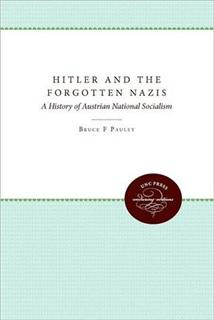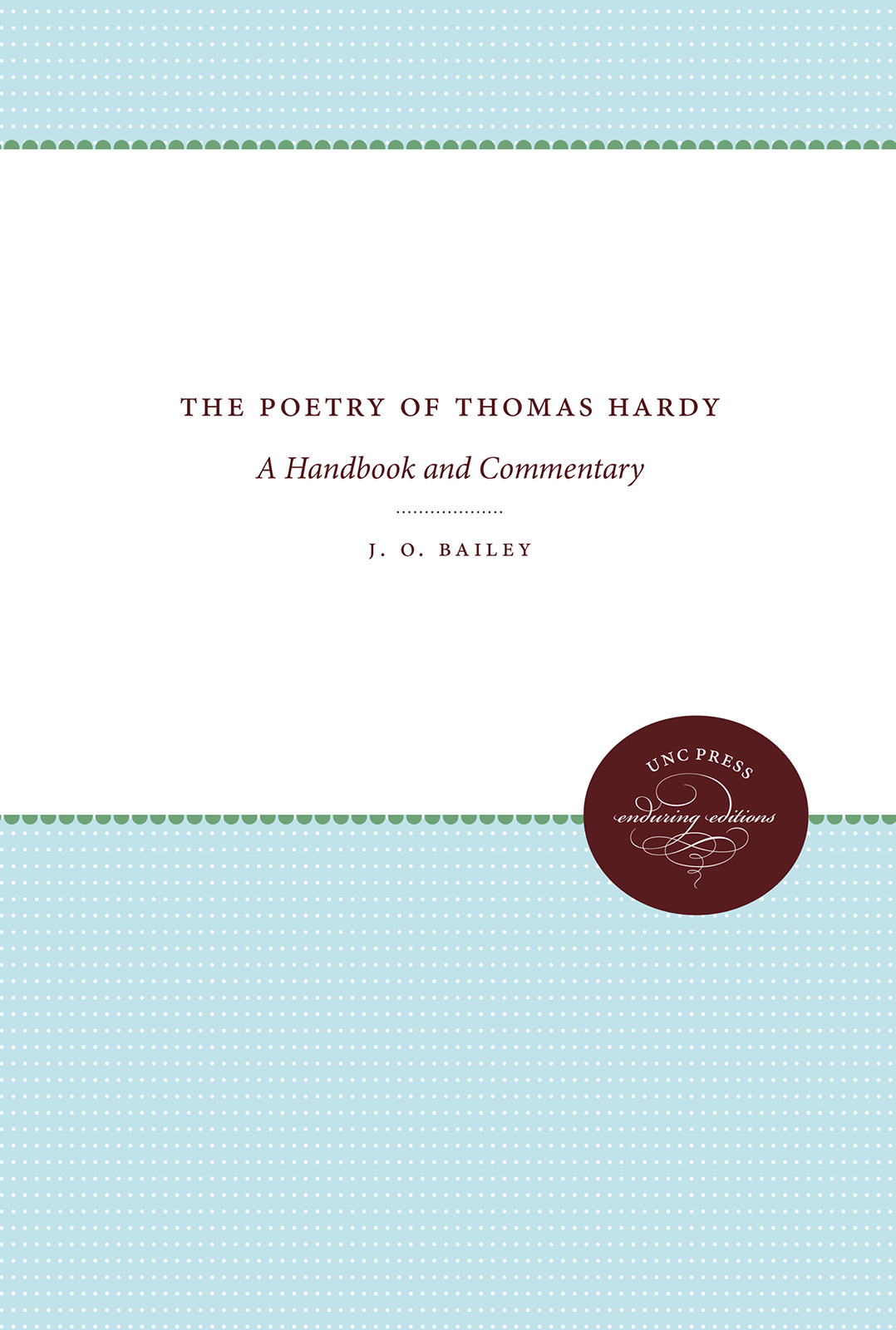Preface
The Poetry of Thomas Hardy: A Handbook and Commentary is an attempt to provide readers, students, and critics with data they need to understand a body of poems often misinterpreted. The poems and the poet were misunderstood during Hardys lifetime in ways that both dismayed and amused him. He stated this fact in the poem So Various. The new critics of recent years have continued to misunderstand the poems through ignorance of the facts Hardy had in mind when he wrote.
He put himself intimatelyhis personal experiences and his observationsinto his poetry, but (except briefly, now and then) he did not supply footnotes. The present Handbook and Commentary supplies factual notes and even, where facts are not available, surmises intended to throw light on meaning.
Professor Richard Purdys Thomas Hardy: A Bibliographical Study offers many hints of the relation between Hardys life and his poetry, but his book is devoted chiefly to manuscripts and publication facts. His notes are limited to citing, for a few poems, the persons or occasions treated or biographical parallels in The Early Life or The Later Years. The commentaries of the present book, recognizing Purdys first-hand source of information (his friendship with Mrs. Florence Hardy), tend to rely upon this information as authentic and then to fill in the gaps wherever factual data are available.
My method has been first-hand exploration. I visited the places Hardy names in his poems, talked with elderly citizens of Dorchester who knew Hardy personally, read what remains of Hardys notebooks and as many letters as possible, and considered almost everything in print.
In my search for elusive facts I have been aided by institutions and individuals who have heartened me with their faith in the value of this work. I am grateful to the Cooperative Program in the Humanities of Duke University and The University of North Carolina at Chapel Hill for a grant that helped me spend the summer of 1965 exploring the Hardiana in the Colby College Library; I am grateful to The University of North Carolina at Chapel Hill for a seven-months leave-of-absence in 1966, to live in Dorchester, read the documents in the Dorset County Museum, and explore Hardys Wessex, Cornwall, and London. I am grateful to the University Research Council of The University of North Carolina at Chapel Hill for assistance in travel to distant libraries, for stenographic help, and for aid in the publication of this book.
Libraries and museums in both the United States and England have offered every friendly service within their power. I offer thanks to the staffs of the libraries listed here. In the United States: the Colby College Library, the Library of Congress, the New York Public Library (the Berg Collection), the Yale University Library, the Princeton University Library, the Lilly Library of the University of Indiana, and the Miriam Lutcher Stark Library of the University of Texas; and in Great Britain: the Dorset County Museum (custodian of the Max Gate papers, the Sanders Collection, etc.), the Dorset County Library in Dorchester, the Weymouth Public Library, the British Museum, the Bodleian Library in Oxford, the Fitzwilliam Museum and the University Library in Cambridge, the National Library of Scotland in Edinburgh, the County Archives for Wiltshire in Trowbridge, and the Public Records Office in London.
I wish to thank again, in this public statement, the many friendly people who have helped, often with information not to be found in libraries. Dr. George M. Harper, then Chairman of the English Department of The University of North Carolina at Chapel Hill, approved my leave-of-absence for the work in England. The late Professor Carl J. Weber of Colby College gave me, in many conversations and letters, the benefit of his career as a Hardy scholar. Curator Richard Cary, Albert Howard, and Mrs. Mary Wandersee of the Colby Library looked up for me every scrap of information in the Hardiana there. Professor Siegfried Wenzel of The University of North Carolina at Chapel Hill gave me help with problems involving Latin and Greek.
In Dorchester, where I was a stranger, I asked questions of people who had known Hardy and found everyone glad to help. Curator Roger Peers and his assistants, Miss Maureen Samuel and A. T. Stangrom of the Dorset County Museum, found for me obscure documents collected there. Lieutenant-Colonel D. V. W. Wakely of the Military Museum ransacked files for information about the old soldiers of Hardys poems. Assistant Librarian Miss B. M. Betts and County Archivist Miss Margaret Holmes helped me find old deeds and records. Francis Dalton, retired Curator of the Dorset County Museum, pointed out personally known facts about Hardys poems. Good friends Ernest and Lillian Burt, living in Dorchester in 1966, took me to Hardy places all through Wessex. Miss May ORourke, a secretary for Hardy in the 1920s, provided personal data about a number of poems. Frank Southerington, Jr., Hardy scholar from nearby Abbotsbury, went with me to explore parish records in the villages where Hardys ancestors had lived. Mr. and Mrs. J. P. Skilling, caretakers of the Hardy Birthplace, led me to spots on Egdon Heath mentioned in Hardys poems. Mr. Beauchamp of Damers Hospital (formerly the Union of several Hardy poems) guided me through the Hospital and told me its history. Mrs. Vera Mardon, pianist for Hardy and the Hardy Players, showed me a number of letters and recalled her experiences of the 1920s.
Outside Dorchester, friends were equally generous. Frank Pinion of Sheffield University, then preparing A Hardy Companion, welcomed my company on several excursions and allowed me to read his manuscript. Mrs. Gertrude Bugler of Beaminster, who played Tess in the Hardy Players production of Tess of the DUrbervilles, showed me letters from Hardy and Mrs. Florence Hardy and guided me to sites of poems near her home. Mr. and Mrs. J. Stevens Cox, now of Guernsey, publishers of the Hardy monographs, showed me their collections of material. Miss Lois Deacon let me read the documents upon which Providence and Mr Hardy rests and discussed her theories with me. Hugh G. Brasnett of Wimborne showed me photographs he had made to illustrate Hardys works and guided me to places of interest in Wimborne. The late Miss Verena Acland of West Stafford told me the facts underlying Hardys Timing Her. Mr. Gell, living in Woodsford Castle, took me through the Castle and discussed the scenes of A Sound in the Night. Mrs. Joan Cochrane of Milton Abbas told me the story of her niece Lorna, of Hardys Lorna the Second. Mrs. Gwendolen Bax of the Old Rectory, St. Juliot, gave me information valuable in understanding the poems laid there. Reverend Allen G. Watling, vicar of Melbury Osmund, helped me discover facts in the parish records. Mrs. P. F. Chapman, archivist for Madame Tussauds in London, provided information for understanding At Madame Tussauds in Victorian Years. Miss Joan Brocklebank of Affpuddle helped with problems of Hardys old folk tunes. Dean S. Evans of Gloucester Cathedral gave me information concerning The Abbey Mason. Monica Hutchings, author of





